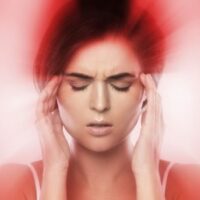Look for the Signs and Symptoms of Concussions

Between professional athletes who receive concussion care and protocols, to our youth sports, where coaches are trained to recognize them, concussion awareness is at an all time high. But despite all the recognition of the dangers of concussions, many accident victims may not even know that they have suffered a concussion.
Blacking Out and Concussions
One common misconception is that you have to black out or lose consciousness, to sustain a concussion. That simply isn’t true. There is no correlation between blacking out and getting a concussion—that is, you may have sustained a concussion whether you blacked out or you didn’t.
Of course, blacking out is a very good indication that you likely did sustain a concussion. And you may not even know that you blacked out.
Many people who black out because of an accident, often don’t specifically remember being unconscious, they just don’t remember the whole event or accident, or don’t remember details about the accident. They don’t know why they don’t remember, they just don’t—but it’s because they blacked out. Anybody in that situation should immediately get treatment for and assume that they have sustained a concussion.
Functioning After an Accident
Whether you remember blacking out or not, your functioning immediately at the scene of an accident, or even in the hours after the accident, can indicate a concussion. Many people who sustain concussions often aren’t themselves, or they may not be able to respond quickly to prompts or questions, or they may have confusion over where they are.
Signs After a Concussion
May concussions are smaller, and don’t involve blacking out, or immediate confusion. That can make them more difficult to detect. Many typical concussion symptoms are dismissed as something else.
For example, people after a concussion may be confused, irritable, or have difficulty concentrating. They may attribute this to the stress after an accident or because of whatever other physical pain or injuries they may have sustained, without realizing that these symptoms are because of a concussion.
There are more serious symptoms of concussions. They can include being nauseous, or dizzy. You may feel overly sensitive to light or noise. You may lose coordination, or not be able to do simple physical movements as fluidly and effortlessly than you did before the accident. Although rare, people who have sustained concussions may have bladder problems, or even may have fluid that comes out of their noses.
These are serious symptoms—but they are at least easy to detect, allowing and encouraging victims to get treatment for concussions.
Getting Checked
Your doctor may suggest a CT scan, or an MRI, to look for changes in the brain. Sometimes, the typical emergency rooms don’t prove these kinds of scans, so never assume that because a concussion wasn’t diagnosed in the emergency room, that you are OK.
Did you suffer a concussion after an accident? We can help. Contact the Tampa personal injury lawyers at Barbas, Nunez, Sanders, Butler & Hovsepian and schedule a consultation today.
Sources:
cdc.gov/headsup/basics/concussion_symptoms.html#:~:text=Appears%20dazed%20or%20stunned.,Answers%20questions%20slowly.
mayoclinic.org/diseases-conditions/concussion/symptoms-causes/syc-20355594
